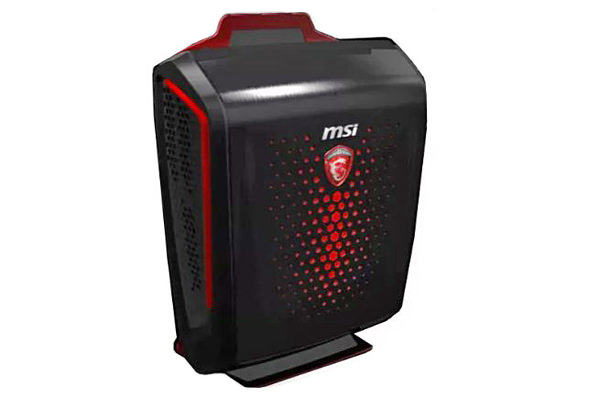The hardware of a gaming PC encased in a shell that can be worn as you wear a backpack. And ‘This is the idea behind the Backpack PC that MSI is preparing to show at Computex Taipei.
An exercise in style that, in the future, it may be useful to users who use a virtual reality viewer.
MSI has almost entirely stamped personal computers, laptops and peripherals dedicated gamers with its core business. No wonder, then, that the company is committed to exploring new frontiers of gaming entertainment today related to the emerging market of Virtual Reality.
Explore, it can also mean to dare and venture into businesses that, in the first instance, can be quite preposterous. The Backpack PC, which MSI is preparing to show the public the Computex Taipei, expresses this desire to create new categories of products that, in the future, and with the progress of technological progress, could find effective application.

The basic idea of the Backpack PC is simple: enclose the hardware of a computer game in a shell that can be worn by the user as if it were an actual backpack. What at first may seem like a (crazy) exercise in style, actually has a reason that so crazy is not for users who plan to use the latest vision of Virtual Reality.
These products think Oculus Rift or HTC Vive – require a wired connection to the PC that, in turn, must have the adequate computing power to manage content and VR viewer (a circumstance that eliminates a priori the possibility to use the most compact PC, eg. MiniPC Stick and PC). Why wear a PC then? To break free from cables that, among other things, it can impede the user while moving in the virtual space wearing the visor.
The information provided at the time by MSI on Backpack PC are not quite complete: the company has confirmed that inside the backpack PC can be integrated Intel Core i7 processors and video cards GeForce GTX 980, and the official rendering can be seen that the thickness and, probably, also the weight it will not properly be contained.
Likely MSI will use notebook-based components, but also starting from this assumption. The PC shoulder does not seem compact to such an extent as to make it comfortable during extended gaming sessions.
The product must be considered, in the first place, as a style exercise, the concept of a product which, inter alia, to have a real utility for the gamer will have to be used in conjunction with video games specifically optimized for the use of viewer in ” cable-free ” mode.
It is not even known to the Backpack PC autonomy, another important element in view of which will probably be used without being connected to a power outlet – unlike the Backpack PC utilities would be frustrated.
Although the idea of MSI may seem to some pretty weird aspects, we must emphasize that the company is not the only one to move in this direction. Zotac also, a few days ago, it submitted a project not too different, Zotac Mobile VR, based on the Zotac ZBOX.

